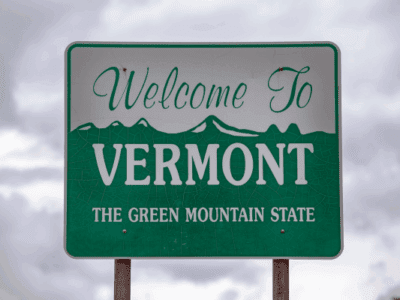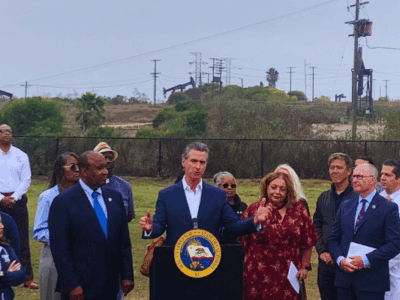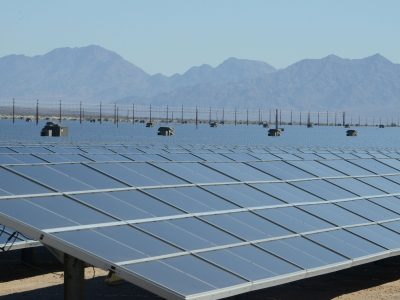Coal States File Premature Petition to Block Clean Power Plan
AGs Sue For Tactical and Political Reasons Even Though Their Legal Case is a Loser
 Attorneys General from 15 states, led by West Virginia, filed a petition in federal court yesterday to block the Clean Power Plan (CPP) from going into effect. The filing seems to be more tactical and political than a serious legal claim: the Environmental Protection Agency has yet to publish the rule in the Federal Register and Section 307(b)(1) of the Clean Air Act authorizes judicial review only “within sixty days from the date” a rule “appears in the Federal Register.” As a result, the D.C. Circuit Court of Appeal is almost certain to reject the petition as premature. So what is motivating these Republican-led states (they include Alabama, Arkansas, Florida, Indiana, Kansas, Kentucky, Louisiana, Michigan, Nebraska, Ohio, Oklahoma, South Dakota, Wisconsin, Wyoming)? Politics and strategic maneuvering.
Attorneys General from 15 states, led by West Virginia, filed a petition in federal court yesterday to block the Clean Power Plan (CPP) from going into effect. The filing seems to be more tactical and political than a serious legal claim: the Environmental Protection Agency has yet to publish the rule in the Federal Register and Section 307(b)(1) of the Clean Air Act authorizes judicial review only “within sixty days from the date” a rule “appears in the Federal Register.” As a result, the D.C. Circuit Court of Appeal is almost certain to reject the petition as premature. So what is motivating these Republican-led states (they include Alabama, Arkansas, Florida, Indiana, Kansas, Kentucky, Louisiana, Michigan, Nebraska, Ohio, Oklahoma, South Dakota, Wisconsin, Wyoming)? Politics and strategic maneuvering.
A little history first. This is not the first time states and energy companies have tried to stop the CPP from going forward. They filed a suit earlier this year in the same court to invalidate the CPP before EPA issued the final rule but while the plan was still in draft form. They lost on the grounds that the suit was premature. In the earlier case, the group relied on a federal statute, the All Writs Act, to claim that the court should block the CPP from going into effect even though the rule was still in draft form. Petitioners argued that the court should exercise extraordinary jurisdiction to block the draft rule because petitioners were spending money and time in anticipation of having to comply with the rule and therefore were being irreparably harmed. (Irreparable harm to the petitioners is part of the legal test for determining whether to block, or stay, the rule.) Here’s what the D.C. Circuit stated in rejecting the earlier lawsuit as premature:
Petitioners are champing at the bit to challenge EPA’s anticipated rule restricting carbon dioxide emissions from existing power plants. But EPA has not yet issued a final rule. It has issued only a proposed rule. Petitioners nonetheless ask the Court to jump into the fray now. They want us to do something that they candidly acknowledge we have never done before: review the legality of a proposed rule. But a proposed rule is just a proposal. In justiciable cases, this Court has authority to review the legality of final agency rules. We do not have authority to review proposed agency rules. In short, we deny the petitions for review and the petition for a writ of prohibition because the complained-of agency action is not final.
And here’s what the court said about the harm the petitioners were experiencing in spending resources planning for the rule:
We recognize that prudent organizations and individuals may alter their behavior (and thereby incur costs) based on what they think is likely to come in the form of new regulations. But that reality has never been a justification for allowing courts to review proposed agency rules. We see no persuasive reason to blaze a new trail here.
It’s hard to imagine the court saying anything different now that the rule has been issued and finalized but isn’t yet published. The rule will very likely be published in the next few months (petitioners concede as much in their court papers) and then a motion to stay the rule will be appropriate. Before that time, the D.C. Circuit will likely use the very same reasoning it’s already used to deny the petition.
So why are petitioners back in front of a court that is almost certain to slap them down? First, the legal case is really a political attack on the CPP. My guess is that the states (and their political leaders) want to control the narrative about how the CPP is a catastrophe for them. The filing of the suit is already making headlines and was the lead story on the Huffington Post last night.
My guess is that the second reason for the filing is more tactical. The D.C. Circuit assigns cases to three-judge panels. The earlier case seeking to block the draft CPP from going into effect was assigned to three judges, the Honorable Thomas B. Griffith, the Honorable Karen L. Henderson, and the Honorable Brett Kavanaugh. All three are appointees of Republican Presidents, Henderson by George H.W. Bush and Kavanaugh and Griffith by George W. Bush. In 2012, Judges Griffith and Kavanaugh struck down an EPA rule involving air pollution that crosses state boundaries, a decision later overturned by the Supreme Court in EPA v. EME Homer Generation. And the same judges — in an unusual move — blocked the cross border air pollution rule from taking effect while the litigation was pending. Judge Kavanaugh also voted to rehear a different Clean Air Act case, upholding greenhouse case emissions rules for new factories, because he disagreed with a three judge panel that had upheld the rule (Judge Griffith voted not to rehear the case). The Supreme Court also largely upheld those greenhouse gas rules in UARG v. EPA. The states and energy companies that filed yesterday’s petition would be quite happy to have this panel of judges hear the challenge to the final Clean Power Plan. Indeed, at the same time they filed yesterday’s petition, the states also filed a motion to consolidate the new challenge with the old one — pretty clearly a blatant attempt to get the same panel to hear the substantive challenge to the rule even though there is virtually no basis for granting a stay prior to the rule being published.
It seems unlikely that the tactical maneuver will succeed because the three judge panel has yet to invest significant judicial resources in deciding the merits of a claim that the CPP is illegal. Allowing the same panel to hear the case simply because petitioners have filed two motions for stays that have no legal basis, moreover, creates perverse incentives for lawyers to engage in filing shenanigans simply to see if they can get a panel of judges to their liking. The D.C. Circuit seems likely to see through the charade. So I’d predict that a new panel is likely to be assigned a legitimate challenge to the Clean Power Plan. Even if the state petitioners do succeed in getting the same panel, EPA has done a lot to solidify the legality of the rule and the panel may well uphold it. In rejecting the earlier case as premature, the panel has already shown it’s not going to buy weak legal arguments from petitioners. But I suspect that petitioners filed the motion to stay the case yesterday to try to gain a tactical advantage. They’re likely to fail.
Reader Comments
One Reply to “Coal States File Premature Petition to Block Clean Power Plan”
Comments are closed.







Dear Ann,
This “premature” lawsuit by the Attorney Generals of 15 states is only a taste of what is coming if and when the EPA ever decides to publish the final rule (Clean Power Plan) in the Federal Register. If EPA ignores this premature lawsuit and decides to publish the final rule, then the CPP will be tied up in litigation ad infinitum and most likely will never be implemented nor enforced. Thanks for informing this forum of our progress (both now and going forward). Have a good day.